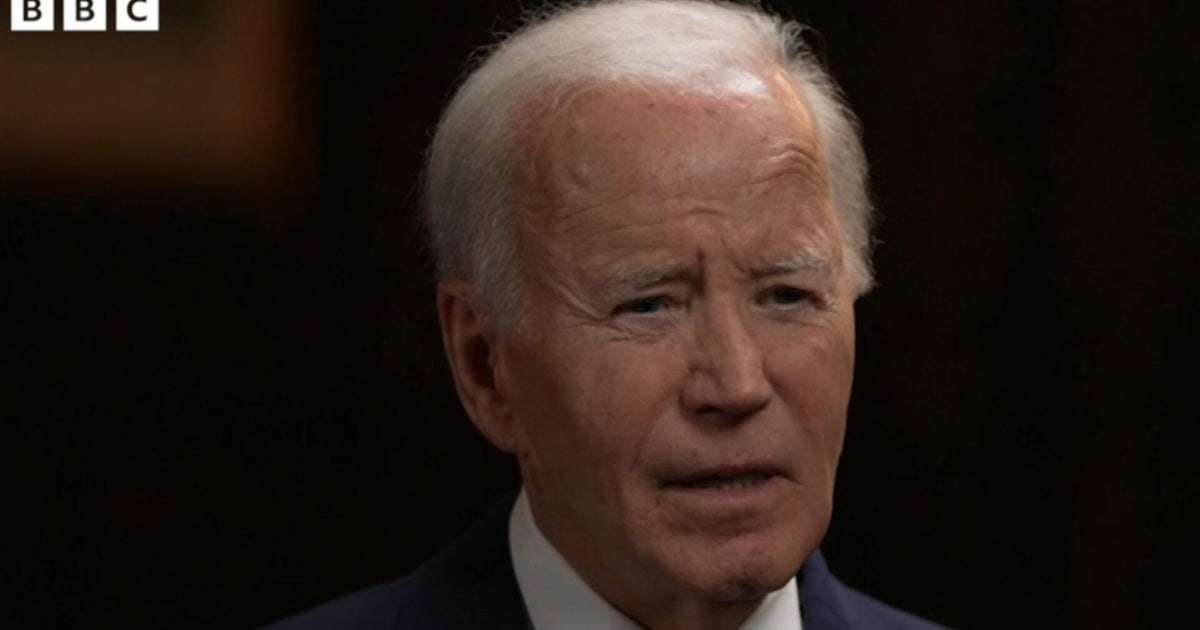In an enlightening post-presidency interview, former President Joe Biden offered a scathing critique of his successor’s foreign policy maneuvers. Speaking for the first time since vacating the White House, Biden denounced Donald Trump’s diplomatic strategies as akin to “modern-day appeasement,” particularly regarding Russia. He expressed severe consternation about Trump’s controversial policies which include territorial aspirations and dubious international dealings.
Biden’s conversation with BBC News highlights a vigorous disagreement with Trump over a variety of global policy issues. Among them, his bafflement at Trump’s purported attempts to redefine international boundaries and U.S. territories gained center stage. Specifically, Biden questioned the wisdom behind Trump’s interactions concerning Greenland, Canada, and the whimsical idea of the “51st state,” as well as his audacious viewpoint on renaming the Gulf of Mexico to the Gulf of America.
“What the hell’s going on here? What president ever talks like that? That’s not who we are,” Biden said incredulously in the interview. His remarks underscored a stark contrast between his administration’s focus on “freedom, democracy, opportunity,” and what he categorizes as Trump’s focus on “confiscation.”
In his critique, Biden particularly focused on a recent discussion between Trump and Canadian Prime Minister Mark Carney, arising from the Liber Party’s April election victory which seemed colored by Trump’s political stance. During a pivotal Oval Office meeting, Carney emphasized that Canada would “never be for sale,” countering Trump’s provocative comment, “never say never.”
Additionally, in a discussion on NBC News’ “Meet the Press,” Trump openly contemplated strategic actions towards Greenland, suggesting that it holds significant national and international security value to the U.S. His unrestrained discourse on potentially employing military action to secure the semi-autonomous region — a part of the Kingdom of Denmark with an existing U.S. military base — has heightened tensions and drawn ire, not least from the residents of Greenland themselves.
The former president talked to BBC News in connection with the 80th V-E Day anniversary—the day marking the Nazi surrender in World War II. Biden paralleled his administration’s support for Ukraine after the Russian invasion with the global fight against tyranny during the World War.
Trump’s stance toward Russia in the context of the Ukrainian crisis notably diverges from Biden’s approach. During his administration, Trump has been starkly critical of Ukrainian President Volodymyr Zelenskyy, labeling him ungrateful, while simultaneously engaging in mineral acquisition deals with Ukraine. Biden termed these dealings as nothing short of appeasement toward Russian President Vladimir Putin and highlighted the long-term threats of such a policy.
“Listen to what Putin said when he talked about going from Kyiv into Ukraine, and why he can’t stand the fact that the Russian dictatorship that he runs, that the Soviet Union has collapsed, and anybody thinks he’s going to stop is foolish,” Biden detailed, expressing disappointment in how American diplomatic actions were being conducted under Trump.
Continuing his robust critique, Biden condemned the renaming of the Gulf of Mexico as exemplifying how the Trump administration has mishandled or trivialized important international symbols and relationships. On his very first day in office, Trump had signed an executive order to rename the Gulf, which also included barring reporters from certain news organisations from Oval Office events if they did not align with this new nomenclature.
Trump’s skeptical attitude towards long-standing European alliances was also highlighted by Biden, who defended the formation of NATO as one of the pivotal achievements of post-war American foreign policy. He voiced grave concerns about the potential dissolution of these alliances, noting that without strong cooperative frameworks, adversarial powers like China and Russia would fill the void left by an isolated or inward-looking United States.
In response to Biden’s detailed and historical-laden reproaches, White House spokesman Steven Cheung took to social media, labeling Biden “a complete disgrace to this country and the office he occupied,” showcasing the heightened tensions and stark differences in policy and demeanor between the two leaders.
Despite the political turbulence and the contentious nature of current political discourse, Biden described his decision to withdraw from the presidential race and maintain a lower public profile as difficult but necessary. He reassured that his timing was aligned with having a strong candidate ready to step forward.
Reflecting on his post-presidency days, which included attending significant events such as Pope Francis’ funeral, Biden beckoned towards a future focused on healing and rational discourse, stepping away from the precipice of divisive politics that characterizes the current landscape.
Through this extensive interview, we gain insights not only into Biden’s perspectives and discontents with the proceeding administration but also into the broader ideological and practical shifts in U.S. foreign policy amidst a tumultuous global scenario.









